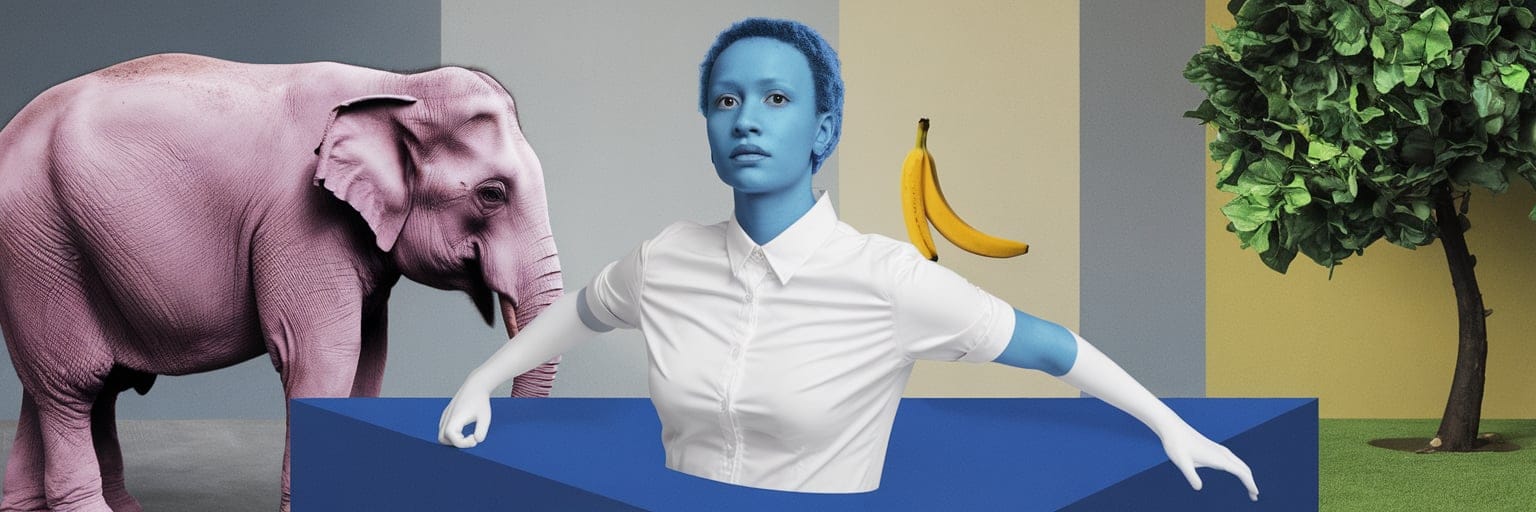Recurring Dreams: Unravel the Mystery of Your Subconscious

The mind is a vast, enigmatic abyss, illuminated by fleeting flashes of dreams each night, some ethereal and fleeting, others tenaciously holding onto the threads of our subconscious. Among these nocturnal narratives, few are as unnerving and persistently profound as recurring dreams. To the dreamer, they are a siren call from the depths of the psyche, whispering hidden truths and emotions, yet cloaked in mystery.
Throughout cultures and time periods, dreams have been regarded as conduits between the conscious and the unconscious, the material and the spiritual. Recurring dreams, appearing night after night with haunting familiarity, have often been seen as particularly potent messengers, demanding an audience with our waking selves. These dreams form a tapestry, weaving together threads of our emotional and psychological state, often guiding us, warning us, or propelling us towards introspection and change.
Overview
In the tapestry of human experience, recurrent dreams stand out as both a psychological curiosity and a profound spiritual phenomenon. They can elicit a gamut of emotions, from anxiety and confusion to wonder and introspection. But what lies beneath these persistent dreams? Are they mere echoes of the past, or do they serve as critical insights into our deepest fears and desires?

The Symbolic and Spiritual Significance of Having Recurring Dreams
Recurring dreams are often far more than the sum of their symbolic parts; they can be intuitive whispers from the universe. Across various cultures, these dreams have been seen as harbingers or insights into the dreamer’s life path. Symbolically, they may represent unresolved issues or internal conflicts that the dreamer is yet to confront. Spiritually, they may symbolize a call to action, urging the dreamer to realign with their true purpose or navigate the thresholds of transformation.
For some, these dreams are imbued with a sense of mystery and intuition. They might be a manifestation of inner independence, a realization that one's journey is unique and laden with personal meaning. The repetition serves as a reminder or a lesson yet to be learned, a story woven into the fabric of our existence waiting to be unraveled.
What Do Different Recurring Dream Scenarios Mean?
- Gradual Loss vs. Sudden Wakefulness: If a recurring dream manifests gradually, unraveling bit by bit, it may symbolize a process of realization or acceptance of a particular life event. The dream's progression often mirrors the dreamer’s emotional journey, highlighting areas in need of gradual introspection. Conversely, if the dream jolts the dreamer awake, it might signify urgent issues demanding immediate attention.
- Painless vs. Fearful Experiences: A recurring dream devoid of fear may suggest a lingering unresolved issue that is benign or passive, a gentle reminder from the subconscious. However, fear-infused repetitions often signal deeper anxiety or apprehension that the dreamer needs to address with urgency.

Psychological Interpretations of Having Recurring Dreams
Freudian Perspective
Sigmund Freud would likely view recurring dreams as revealing repressed desires or unresolved conflicts buried in the subconscious. For Freud, dreams are the "royal road to the unconscious," offering a vivid glimpse into hidden feelings and unresolved tensions. A recurring dream might stem from an event, memory, or emotion that the dreamer has yet to reconcile or release.
Jungian Perspective
Carl Jung’s approach offers a broader perspective. According to Jung, recurring dreams illuminate archetypal symbols or motifs emanating from the collective unconscious, hinting at the dreamer’s individuation process. They might signal a journey towards self-discovery or a call to integrate aspects of the self that have been neglected or undervalued.
Reiki Perspective
In the realm of Reiki and energy healing, recurring dreams could reflect energy blockages or imbalances. They are energetic echoes of life experiences that cling to the aura, seeking release through understanding and healing. Dreams, from this viewpoint, become a transformative opportunity to balance energy and foster spiritual growth.

Common Causes and Factors Behind Recurring Dreams
Several factors can trigger recurring dreams. High stress, significant life changes, unresolved emotional conflicts, and even health anxieties can act as catalysts, keeping the same dream looping night after night. These dreams often mirror waking life pressures, casting the dreamer’s subconscious struggles into stark relief through repeat performances.
A particularly poignant cause is unresolved grief or trauma. Unexpressed emotions find voice through the narrative of dreams, calling attention to pain or loss that refuses to heal in daylight. Similarly, feelings of jealousy, regret, or deprivation might surface repeatedly, seeking acknowledgment and resolution.
Scientific Explanations for Recurring Dreams
From a scientific angle, recurring dreams might be linked to neurological factors or sleep disturbances. Research suggests that the brain consolidates memories during sleep, reprocessing information from daily life. Recurring dreams could be the mind’s method of attempting to solve or make sense of lingering issues.
Sleep patterns, particularly disturbances such as REM sleep interruptions, can exacerbate recurring dreams. Physical sensations or conditions—such as hormonal cycles, illness, or even diet—might also play a part, influencing the brain's dream production and repetition.
Coping Strategies for Recurring Dreams
Understanding and managing recurring dreams require a blend of introspection and proactive measures:
- Dream Journaling: Keeping a dream diary can unveil patterns and themes, offering insight into recurring elements and their potential links to real-life experiences.
- Professional Guidance: For persistent or distressing dreams, seeking professional counseling can facilitate deeper exploration and resolution.
- Mindfulness and Meditation: Practices that promote relaxation and stress reduction can positively impact dream patterns, aiding in the dissipation of recurring narratives.
- Sleep Hygiene: Ensuring a restful sleep environment and adopting healthy sleep habits can help reduce night-time disturbances.
Summary & Final Thoughts
In the enigmatic realm of dreams, recurring visions hold a place of profound significance. They are whispers of the mind, complex puzzles inviting us to delve deeper into our psyche. By reflecting on the themes and emotions they present, we begin to uncover truths about our waking lives, illuminating areas in need of attention and understanding.
Recurring dreams are both an invitation and a mystery—a chance to listen to our inner selves and embrace the journey towards healing and growth. Encourage introspection, for, within these dreams, lie precious keys to the labyrinth of self-discovery.
FAQ: Deciphering Dreams of Teeth Falling Out
What do dreams about teeth falling out symbolize?
Dreams in which teeth fall out often symbolize feelings of insecurity, powerlessness or loss. They can signify concerns about personal appearance, communication difficulties, or fear of change. On a fundamental level, they are commonly associated with feelings of unease or a sense of loss of control.
How do recurring dreams where teeth fall out relate to unresolved issues?
Recurring dreams of teeth falling out can hint at ongoing internal conflicts or unresolved issues. These dreams can serve as subconscious signals that the dreamer needs to face these problems or anxieties directly.
What is the psychological interpretation of dreams about teeth falling out?
- Freudian Perspective: Freud might suggest these dreams represent repressed anxieties or conflicts.
- Jungian Analysis: Jung could see these dreams as exploring broader themes of personal identity and self-awareness.
Are there any cultural beliefs associated with teeth falling out in dreams?
Cultural interpretations of these dreams can vary widely. Some see them as omens of loss or misfortune while others consider them signs of transition, growth, or personal transformation.
What are the common causes of recurring dreams where teeth fall out?
Common triggers include stress, significant life changes, or unresolved emotional conflicts. Anxieties about health, self-perception, or communication difficulties might also be expressed through dreams about teeth falling out.
Can scientific explanations shed light on recurring dreams of teeth falling out?
Scientifically, these dreams could be attributed to neurological activity during REM sleep or sleep disturbances. They could also arise as the brain consolidates daily stressors into memory, presenting unresolved issues or fears in the form of dreams.
How can dream journaling help in understanding these recurring dreams?
Dream journaling can help identify patterns and recurring themes. It promotes a deeper understanding of symbolic representations and can link dream scenarios to corresponding emotions or experiences in waking life.
What strategies can help manage or reduce recurring dreams about teeth falling out?
Coping strategies include keeping a dream journal to analyze patterns, seeking professional counseling for emotional distress related to these dreams, stress management techniques, and establishing healthy sleep habits.
How might the Reiki perspective view dreams where teeth fall out?
From a Reiki or energy healing perspective, dreams about teeth falling out could signify energy imbalances. They might illuminate areas needing healing or release, supporting personal growth and spiritual alignment.
What final thoughts should we consider about dreams where teeth fall out?
While they might cause distress, dreams where teeth fall out can offer valuable insights. They provide an opportunity to examine personal insecurities or fears, encouraging emotional processing and self-expansion. Understanding these dreams fosters personal growth, self-understanding, and emotional resilience.




